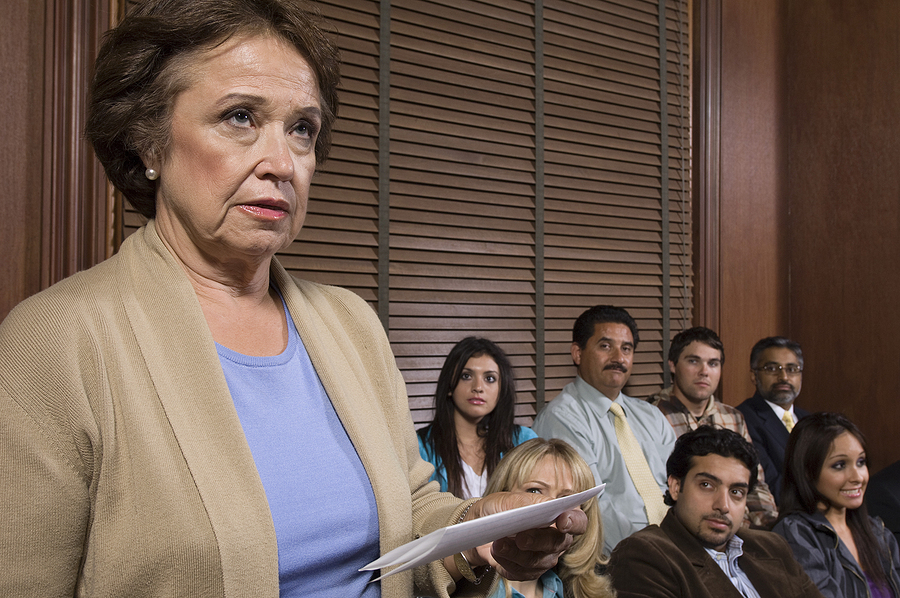If you have important knowledge or information about a crime, you may be asked to attend court as a witness for the defence or the prosecution. Most people haven’t been in a courtroom, let alone been part of an actual court process. Fortunately, this article will help you understand your obligations as a witness and what to expect during your time in court.
If you are a witness, you will be required to answer questions and explain your information to the magistrate or jury to help them in making their decision. Appearing in a court, particularly if it is a larger court, such as Parramatta Local Court, can be intimidating. Having an understanding of the court process may help you feel more confident.
You will usually be asked to be a witness during a court case by the lawyer acting for the defence or the prosecution, or by the defendant themselves if they have no legal representation. The person who has asked you to be a witness will advise you when and where you need to go to court.
Can I refuse to be a witness?
You can refuse to act as a witness if you have a strong objection. If you do, you may be served with a subpoena by the lawyer acting for the defendant or prosecution. A subpoena is a court issued document that requires you to attend court and give evidence, product documentary, or other physical evidence for a court case.
If you have been served with a subpoena, you will be required to attend court and give your testimony.
What if I’m away or sick?
If you are unwell or are going to be away on the date you are supposed to appear in court, it is important to notify the relevant parties as soon as possible. If you are not well on the day, you will need to provide a medical certificate.
Can I wait in a separate area?
If you are concerned that you may be unsafe or you feel threatened, you can ask to wait in a separate area from the defendant. Most courts, particularly large ones, like Parramatta Local Court, have safe waiting areas for witnesses and even remote rooms where some witnesses who may be under threat can give evidence over a video link.
What do I do when I get to court?
Courts are very large and busy places, and there may be a lot of people milling around. When you arrive in the foyer of the court, there will be a list of the matters that are to be heard that day and the courtroom where they are being heard. If you can’t find your case on the list, or if you are still not sure where you need to go, you can speak to a member of staff – there is usually someone on duty to provide advice and answer questions.
How long will it take?
The length of time you will need to be at the court varies according to the complexity of the case and how crucial your evidence is. You may also have to wait a few hours for the hearing to actually start, so it is a good idea to bring a book and be prepared to spend the day at the court. Once you have given your evidence and have been cross-examined by the defence and prosecution, you will usually be allowed to go.
Preparing for court
Confirm your date for giving evidence in court. Currently, as a result of the Covid-19 pandemic, there are changes to court processes. Also, many hearings, which involve witnesses and juries, have been put on hold under New South Wales public health regulations–determining lockdowns, restricting movement, and limiting the number of people allowed together in indoor spaces.
As a result, many of the New South Wales courts have backlogs, which are affecting hearing dates. Keep in touch with the courts or the legal representative who has asked you to appear as a witness, which is either the Department of Public Prosecutions (DPP) or the criminal defence team.

Giving evidence
As part of your preparation, in the days prior to your court appearance, you should read over the witness statement you have already provided. Spend some time making sure that you have all the details clear in your mind. Being on the witness stand can be nerve-wracking, but if you prepare beforehand, you will feel more confident.
The DPP prosecutor or the defence lawyer will help you understand the process beforehand. The criminal prosecution process can be complicated–it involves a lot of different people and also terms of language that we don’t tend to use every day.
You must tell the truth. When you first enter the witness box, you will be asked to swear an oath, which is binding. If you give false evidence, you can be charged with offences, including perjury and perverting the course of justice.
You will be asked questions by both the DPP prosecutor and the criminal defence barrister. The Judge or Magistrate may also ask you questions.
If you do not understand the question, it is ok to say so. Don’t guess your answers; if you don’t know the answer, be truthful. Take your time to think about your answers before answering, and then speak clearly.
You should always follow the directions of the Judge or Magistrate since they preside over the courtroom and are the person in charge.
Although attending court can seem like it is time-consuming and inconvenient, as a witness, your information could play a substantial part in helping the magistrate or jury make the right decision about a legal matter.
Witnesses play a vital role within the justice system. As such, you should take your duty seriously. If you need further advice on appearing as a witness at Parramatta Local court for a criminal or traffic matter, reach out here for the best way forward.


